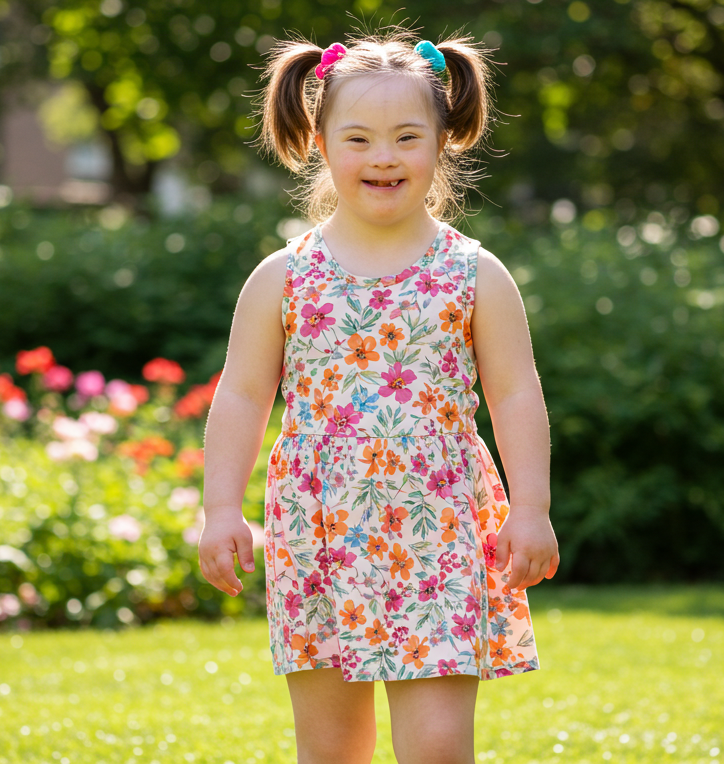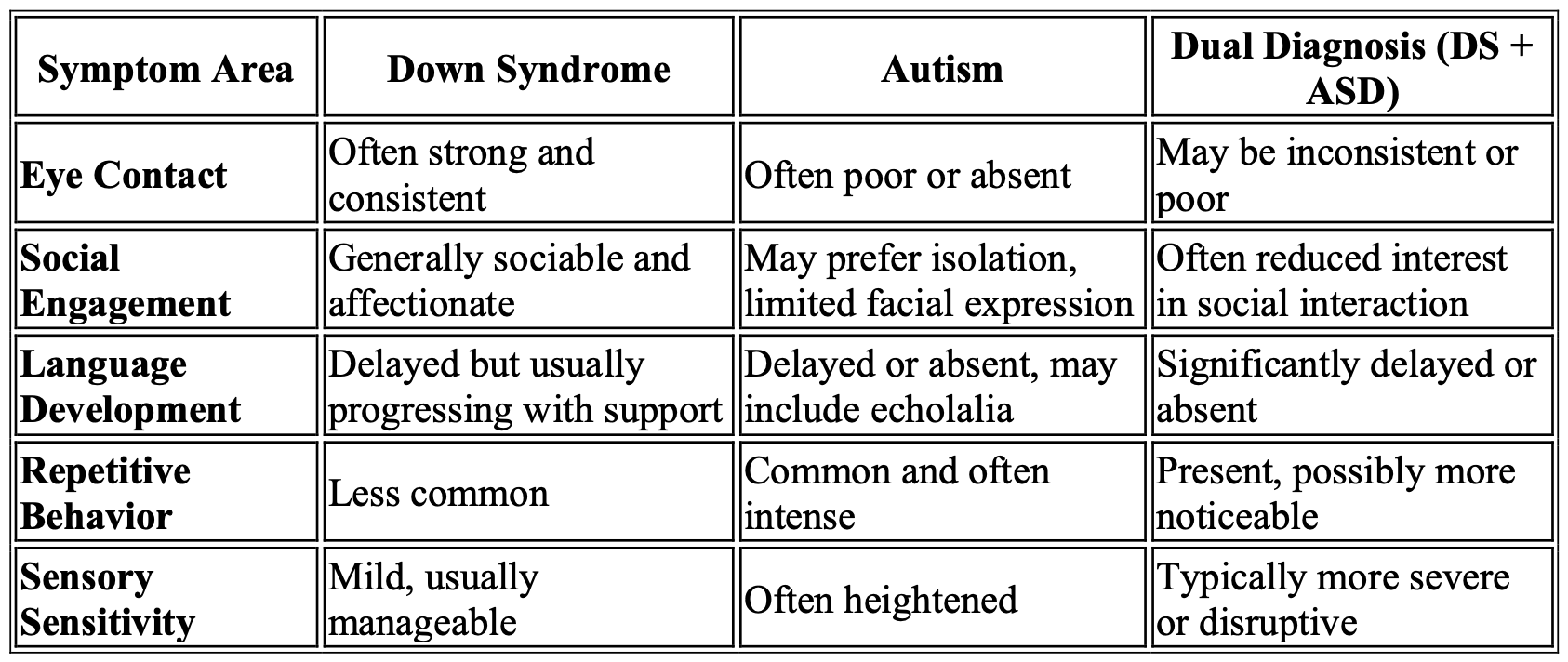Understanding Down Syndrome Symptoms: Types, Characteristics, and Support Strategies

Discovering that your child may have Down syndrome is an emotional experience filled with uncertainty, fear, and questions about the future. For many mothers, the initial diagnosis—whether made during pregnancy or shortly after birth—can be overwhelming. It’s natural to feel a flood of emotions, from grief and confusion to guilt and anxiety. You might worry about how this will affect your child's health, development, and quality of life. Will they be able to speak clearly? Go to school with other children? Live independently one day? These concerns are deeply personal and valid. Understanding the most common Down syndrome symptoms, along with the available support systems, can provide a sense of clarity and empowerment during this time. While each child with Down syndrome is unique, recognizing early signs and learning what to expect can help parents plan for the road ahead and connect with resources that will make a real difference in their child’s journey.
Common Down Syndrome Symptoms
Individuals with Down syndrome often exhibit a combination of physical, cognitive, and behavioral features:
Physical Characteristics:
- Flattened facial profile
- Upward slanting eyes
- Small ears and mouth
- Short neck
- Broad hands with a single crease across the palm
- Short stature
- Low muscle tone (hypotonia)
- Loose joints
These features may be present at birth and become more apparent as the child grows.
Cognitive and Developmental Symptoms:
- Mild to moderate intellectual disability
- Delayed speech and language development
- Short attention span
- Poor judgment
- Impulsive behavior
- Delayed milestones, such as sitting, crawling, and walking
Early intervention programs focusing on speech, occupational, and physical therapy can significantly aid development.
Behavioral Characteristics:
- Stubbornness or impulsivity
- Difficulty transitioning between activities
- Short attention span
- Obsessive or compulsive behaviors
- Sleep difficulties
Understanding these behaviors can help in developing effective management strategies.
In addition to the medical and developmental symptoms commonly associated with Down syndrome, it’s important to be aware that some children with Down syndrome may also display signs of autism spectrum disorder (ASD). Studies suggest that between 5–15% of individuals with Down syndrome also meet the criteria for autism—a dual diagnosis that can bring its own set of challenges and support needs.
While Down syndrome and autism are distinct conditions, they can share some overlapping characteristics, especially in areas like communication, behavior, and social interaction. This overlap can sometimes make it difficult for parents and professionals to recognize the presence of autism in a child who already has a Down syndrome diagnosis.
Autism Symptoms in Children with Down Syndrome
In children with both Down syndrome and autism, symptoms may include:
- Lack of social responsiveness – While many children with Down syndrome are known for their sociable nature, those with co-occurring autism may appear more withdrawn or uninterested in interactions with others.
- Limited eye contact – Children with just Down syndrome often make good eye contact, but those with autism may avoid it more consistently.
- Delayed or absent speech – While delayed speech is typical in Down syndrome, children with both conditions may show a more profound lack of verbal communication and may not use gestures or body language to express themselves.
- Repetitive behaviors – These might include hand-flapping, rocking, spinning, or a strong attachment to routines. These behaviors are more common and more intense when autism is also present.
- Sensitivity to sensory input – Children may overreact or underreact to sights, sounds, touch, or textures. While some sensory sensitivity can occur with Down syndrome, it's usually more pronounced and disruptive in children with autism.
- Unusual play behavior – Rather than engaging in imaginative or cooperative play, children may fixate on spinning objects, lining things up, or repeating the same actions without interaction.
Comparing Symptoms: Down Syndrome vs. Autism vs. Dual Diagnosis (DS +ASD)

Types of Down Syndrome and Symptom Variations
There are three types of Down syndrome, each with distinct genetic patterns:
1. Trisomy 21 (Nondisjunction):
This is the most common type, accounting for about 95% of cases. It occurs when an extra chromosome 21 is present in all cells. Individuals with Trisomy 21 often exhibit the full range of Down syndrome symptoms.
2. Mosaicism:
In mosaic Down syndrome, only some cells have the extra chromosome 21. This can result in milder symptoms, depending on the proportion of affected cells. Individuals may have fewer physical features of Down syndrome and less severe intellectual disability.
3. Translocation:
This type occurs when a portion of chromosome 21 becomes attached to another chromosome. Translocation Down syndrome accounts for about 3% of cases. Symptoms are similar to Trisomy 21, but the condition can be inherited, so genetic counseling is recommended
Associated Health Conditions
Individuals with Down syndrome are at increased risk for various health issues:
- Hearing and vision problems
- Thyroid disorders
- Obstructive sleep apnea
- Alzheimer’s disease in later life
- Mild to moderate cognitive disability
- Metabolic Imbalances
- Almost half of children are born with a heart defect that can be progressive and lead to heart surgery
- Low Muscle Tone
- Risks of obesity
- Depressed immune system, leading to a higher incidence of infection, respiratory problems, and frequent cold and flu viruses
- Risks of gastrointestinal complications, including esophageal atresia.
- Risks of leukemia and other cancers
- Seizure disorders
Regular medical check-ups and early treatment are crucial for managing these conditions.
Support and Intervention Strategies
Expanded Educational Support:
Education plays a foundational role in the development of a child with Down syndrome. A tailored approach—beginning in early childhood and continuing into adulthood—can foster both academic achievement and social-emotional growth.
- Early Childhood Intervention Programs
- Inclusive Classrooms
- Individualized Education Plans (IEPs)
- Special Education Professionals
- Functional Skill Training
- Transition Planning
- Social-Emotional Learning (SEL)
- Parental Involvement and Advocacy
Additional Therapies and Support:
- Speech and Language Therapy: Improves verbal and non-verbal communication skills.
- Occupational Therapy: Enhances fine motor skills, sensory integration, and self-care.
- Physical Therapy: Supports gross motor skills and body coordination.
- Behavioral Therapy: Helps manage impulsivity, improve attention, and address emotional regulation.
To learn more about these about these interventions, go to our page about Down Syndrome Treatment...
Final Thoughts
Children with Down syndrome have unique learning profiles, but with the right support, they are fully capable of making academic progress, forming meaningful relationships, and achieving personal goals. Educational support—when personalized, consistent, and inclusive—becomes a bridge to independence, fulfillment, and long-term success. As research advances and awareness increases, more tools are becoming available to help children with Down syndrome reach their full potential in every area of life.
References
- Web MD. Down Syndrome. www.webmed.com. 3-6-10.
- Cauldwell, K. (2006). Down Syndrome Information: Characteristics of Down Syndrome. www.associatedcontent.com. 10-11-10.
- Web MD. Down Syndrome Symptoms. www.webmd.com. 3-6-10.
- Down syndrome. Mayo Clinic. https://www.mayoclinic.org/diseases-conditions/down-syndrome/symptoms-c…. Published March 8, 2018. 5-29-25